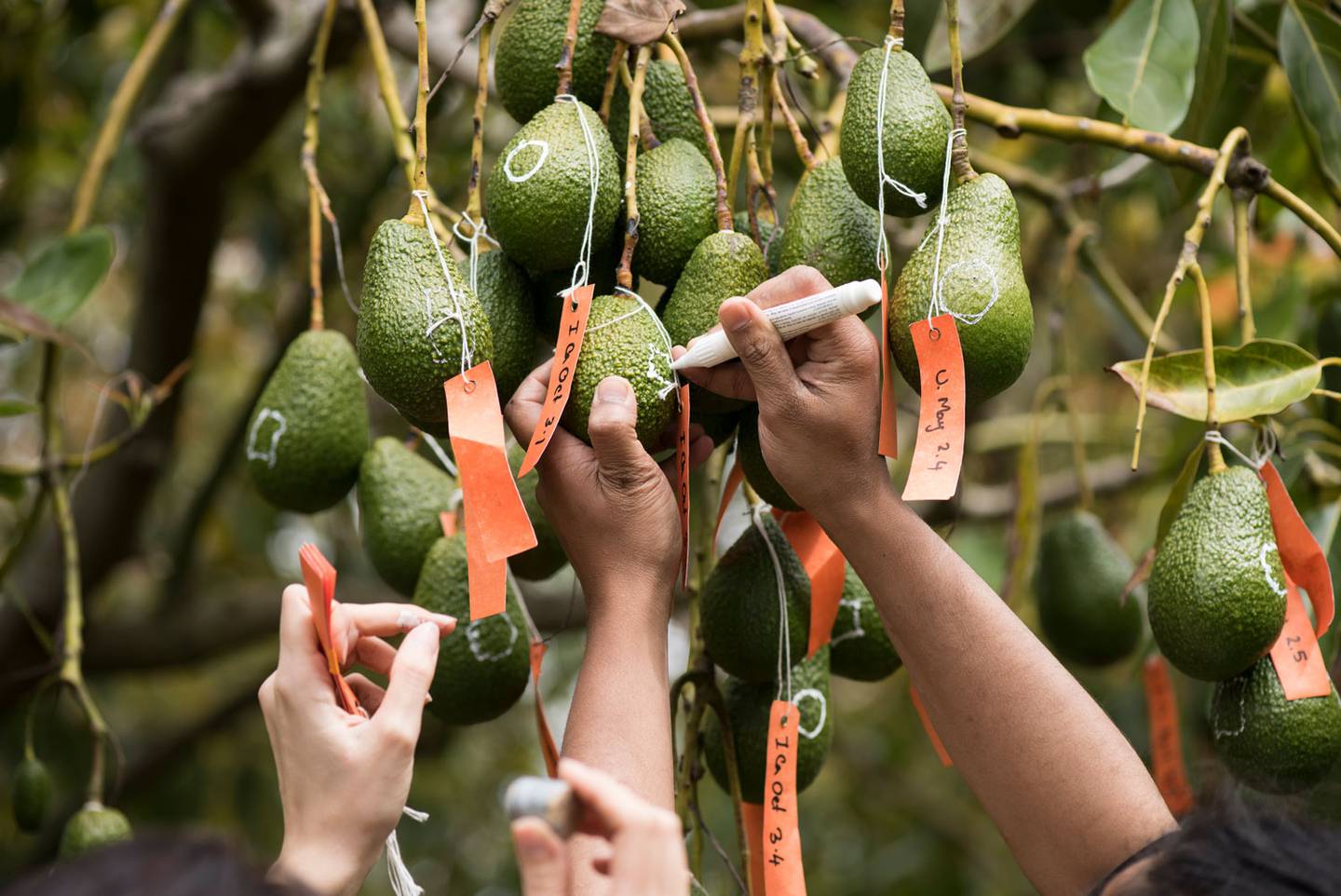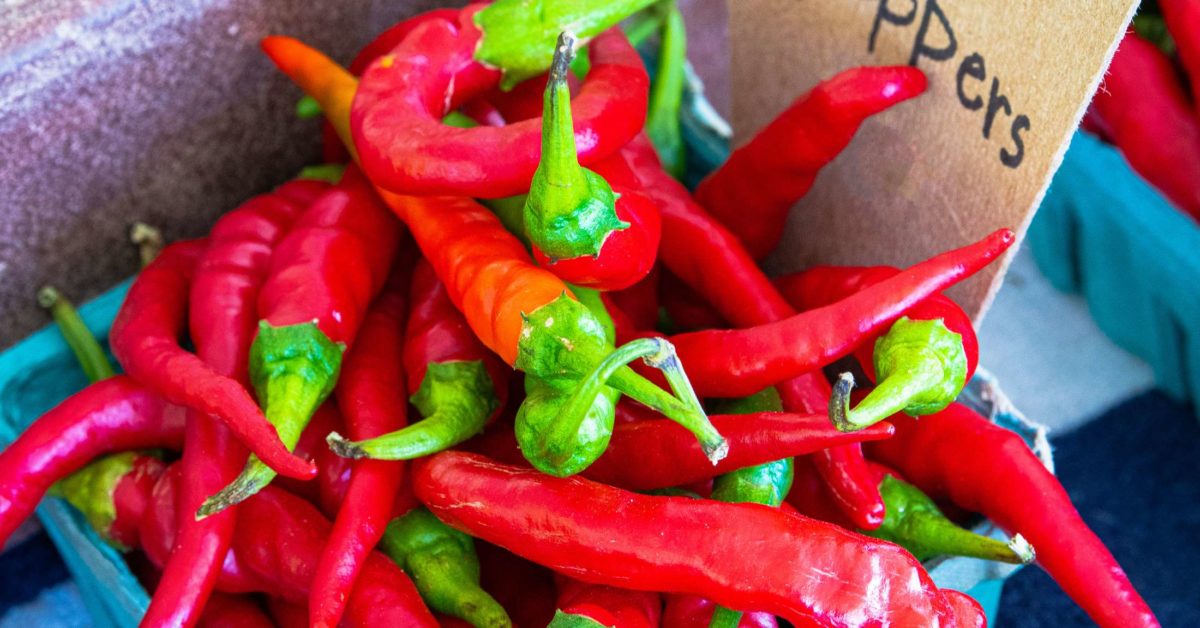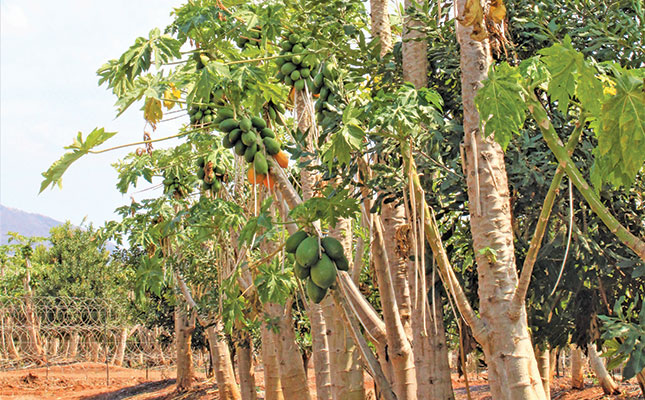International colleagues are fond of telling plant physiologist Nick Gould that New Zealand shouldn’t be able to grow avocados. Yeah, right.
In ten years sales of the popular fruit have rocketed from $70m to $240m – and the industry now has its sights set on revenue of $1 billion by 2040.
Gould, who leads Plant & Food Research work to help make avocado orchard systems more productive, says he’s constantly being told New Zealand is too far south, too wet, cold and windy for a fruit first grown in Mexico and Central America.
Yet, he says, somehow we manage to grow the buttery fruit despite the seemingly unattractive environment: “In fact our growers can produce lots of excellent avocados – about 40,000 tonnes a year.”
To keep up with demand, the fruit is increasingly being planted outside of traditional strongholds such as the Bay of Plenty and Northland.
“There’s a huge opportunity in New Zealand because avocados are such an amazing, highly nutritious food,” says New Zealand Avocado CEO Jen Scoular. “High-value markets, like Thailand and Korea, really like our avocados but we need a lot more research to keep growing the sector.”
Gould says the industry’s ambitious target of $1 billion by 2040, is unlikely to be hit without a heavy dose of science-led change to overcome challenges.
Keep up to date with the day’s biggest stories
Some orchardists, for example, struggle to manage fruit rots, which leads to the unsightly brown often found inside an avocado, while there’s also an issue with ‘irregular bearing’, a phenomenon in which trees that fruit heavily one year can struggle to produce much of anything the next.
/cloudfront-ap-southeast-2.images.arcpublishing.com/nzme/GM6NIQ62XDFFHNYL5HIMLL2D3Y.jpg?w=640&ssl=1)
This means yields are inconsistent, which has an effect on the price, particularly in a low-crop year when demand for each fruit is high.
Enter Plant & Food Research, which is partnering with NZ Avocado to tackle the most pressing challenges, including a big focus on irregular bearing. In one example of this, Gould’s team has trialled pruning shoots carrying flowers and fruit at different times to see how avocado trees respond.
“We’ve been able to show that the earlier you prune a tree in the reproductive cycle, the easier it is to balance the crop carried by the trees year to year,” he says.
But encouraging more flower growth is only part of the story. “The other part is getting more fruit. An avocado tree might have more than one million flowers, but even in a good year, only 0.1 per cent them turn into fruit.”
He says the key to achieving sustainable crop loads is to get well-resourced, healthy flowers that have a good rate of pollen transfer.
“We’re working to understand the local climate on flower health, flower timing and pollen transfer to develop orchard management systems that improve fruit set,” Gould says.
Rot is the other bane of avocado growers. Phil Elmer, who leads the Plant & Food Research plant pathology team, says avocado rot is a complex problem to solve, mostly because five different pathogens are involved.
He says the only fungicide registered for avocado trees are copper-based sprays, and there’s increasing discomfort with its use in the sector.
/cloudfront-ap-southeast-2.images.arcpublishing.com/nzme/R4PNYPPG4FQKT2TRV6XLFQFODE.jpg?w=640&ssl=1)
As part of the Avovantage research programme funded by NZ Avocado, Elmer’s team has been trying to understand how rots take hold – and how this could be mitigated through orchard management practices.
Getting to grips with the issue is complicated by the fact that avocado rot only manifests post-harvest. Plant & Food Research’s plant pathologists began their investigation by tapping into NZ Avocado’s database to see which of the avocado blocks identified for the research had a history of being rot-challenged and which had a history of low rots.
“It turned out that it’s not the orchard block that’s the problem, it’s individual trees within the block,” says Elmer. “There is huge variability between individual trees.
“That finding allowed us to really start drilling down to figure out what was happening in canopies and under the trees. Now we know the individual rot-challenged trees in a block so we can throw everything we know about best practice at these trees to turn them around.”
Avocado growers will be hanging on the results, but Elmer cautions there won’t be a “silver bullet”. Reducing canopy density and reducing pathogen establishment in the tree with well-timed biofungicides are part of the best practices that will be evaluated.
Plant & Food Research is also currently working with NZ Avocado to identify an alternative to copper sprays, and a suite of other orchard practices are likely to be needed. The key will be to find a practical cost-effective combination and prove to orchard managers that it works.
/cloudfront-ap-southeast-2.images.arcpublishing.com/nzme/V6GHUMAQ3HUAHWVJIOSFIIJQ74.jpg?w=640&ssl=1)
“Our goal is to show that control of postharvest rot is possible in an orchard by using best practices,” says Elmer. “But it has to be pragmatic and cost-effective or growers won’t do it.”
Even if an avocado leaves its orchard in good condition, it may not end up that way by the time it gets to your toast. For that reason, Plant & Food Research is working on new approaches to handling fruit from orchard to coolstore and storing fruit during transport.
It’s timely research given ongoing shipping delays caused by Covid-19 – and because New Zealand is increasingly sea-freighting avocados to territories more distant than the traditional market of Australia.
“We’re starting with good fruit from the orchard, and we’ve got to try to get it to the importer, and then the consumer, in the best condition possible,” says Jem Burdon, who leads research focused on identifying the ideal controlled atmosphere system for shipping New Zealand’s avocados.
Using a facility in Mt Albert, Auckland, Burdon’s team has trialled various combinations of oxygen and carbon dioxide, to gauge which atmosphere best prevents ripening during shipping and best mitigates skin and flesh discolouration and rot. “It’s about managing the risk. Is the fruit going to be sellable or not?”
Growing the fruit, controlling pests and diseases and then being able to ship the fruit to market must all occur to create and grow a profitable, sustainable business, says Scoular.
“The science behind our avocado sector needs to be our point of difference, and is really important if New Zealand is to maintain and grow its position in high value export markets.”





